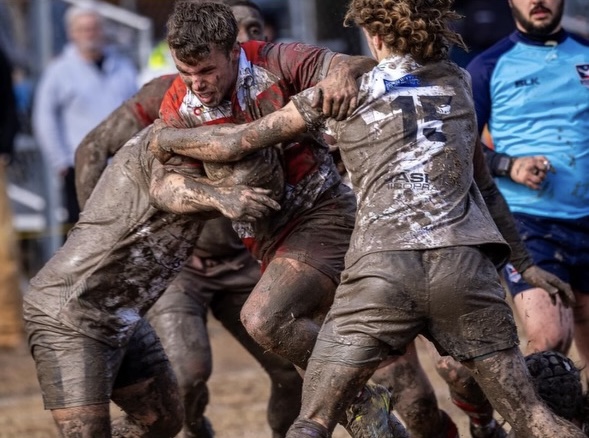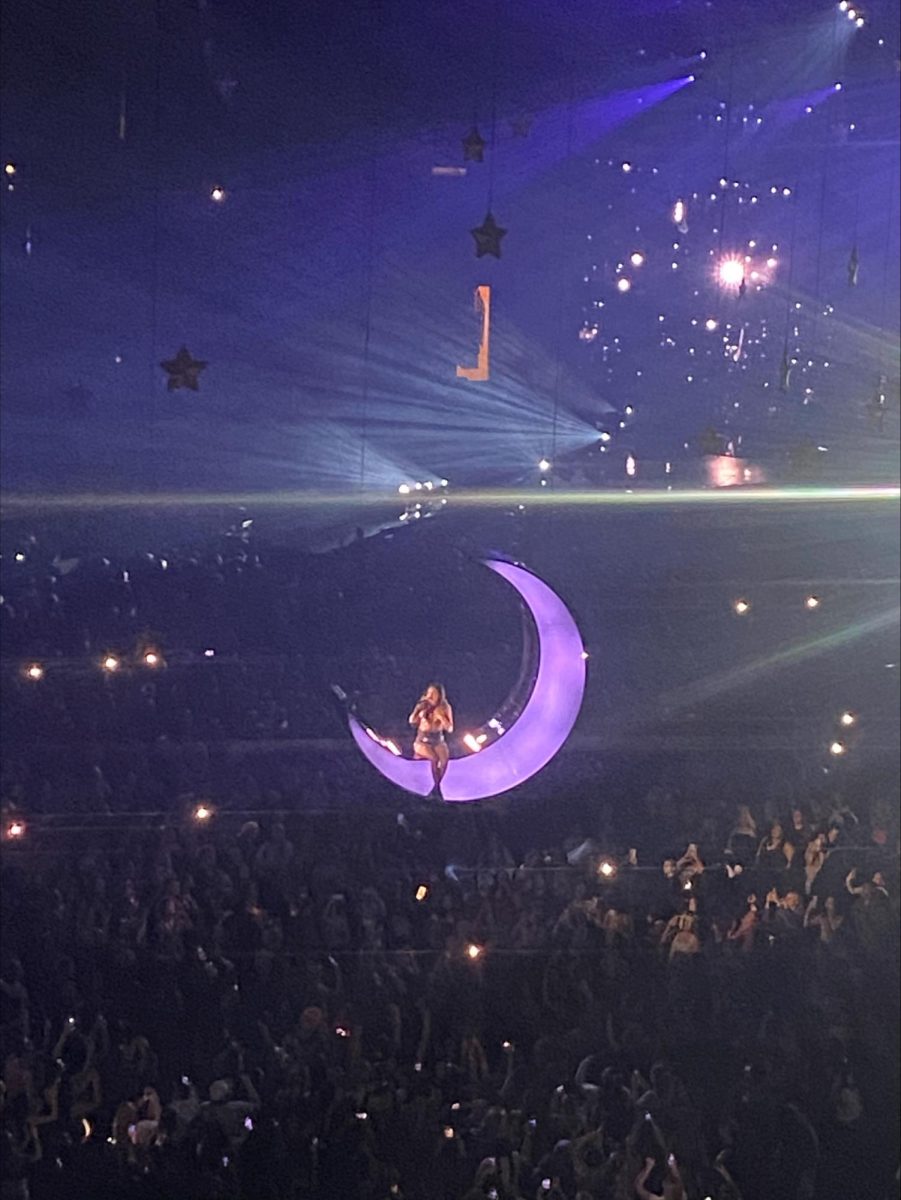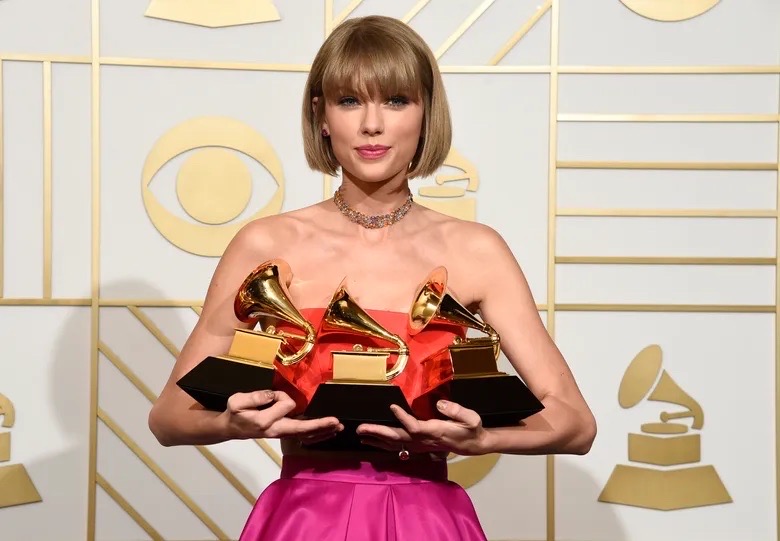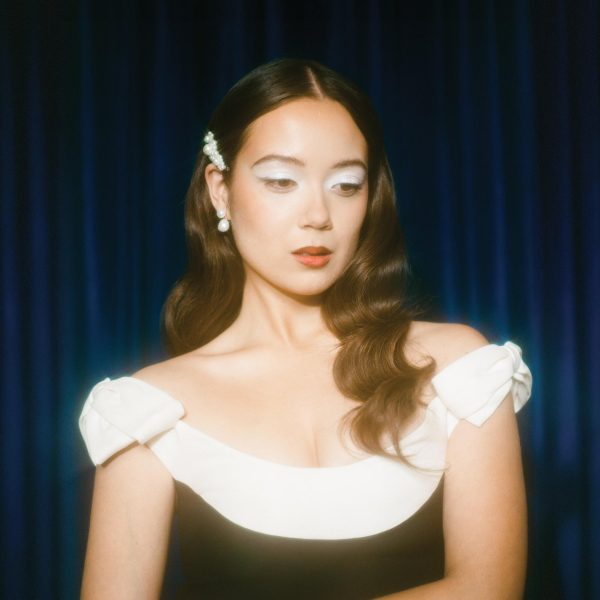The politics of Taylor Swift
The record shattering singer-songwriter has a blank space in her feminism
After achieving a level of fame, success, and cultural ubiquity most artists can only dream of, on Feb. 15, 2015, Taylor Swift reached the mountaintop. On that night, she received the Grammy Award for Album of the Year, marking the grand finale of her meteoric “1989” era, one of the most successful pop albums ever recorded. The win cemented her status as a pop superstar and continued the Recording Academy’s lengthy tradition of rewarding mediocre chart-topping albums by white artists over far superior bodies of work by Black musicians.
Seven years later, Swift has returned to pop music after a brief flirtation with indie folk balladry during lockdown, releasing her 10th studio album, “Midnights” and preparing to headline a blockbuster stadium tour that is already shattering records. As one of the most prolific musicians of the millennial generation, nearly every facet of Swift’s artistry, public image, and personal life have been scrutinized. Much less discussed, however, is Swift’s politics.
In her Grammy acceptance speech for album of the year, Swift proclaimed, “As the first woman to win album of the year at the Grammy’s twice, I want to say to all the young women out there, there are going to be people along the way who will try to undercut your success and take credit for your accomplishments or your fame. But if you just focus on the work and you don’t let those people sidetrack you, someday you will get to where you’re going.”
This speech, in which Swift frames a multi-millionaire wining an entertainment award as a triumph for women and repackages her frustrations with her celebrity rivals as inspiration for young women, exemplifies the kind of feminism which Swift embodies: A self-serving kind of advocacy, distinctly white and bourgeois in character, whose sole aim is the professional advancement of a handful of unfathomably wealthy, privileged women in the name of female liberation. Swift uses the language of feminism, but without reference to the issues of class and race which are essential to the oppression felt by so many women.
Swift’s decision to brand herself a feminist came after her own experiences with misogyny in the music industry. For years, she was subjected to deeply sexist coverage by the media and backlash from many members of the general public because of her personal life. Her every move was dissected and criticized and her songwriting about her love life, a common practice for male musicians, was lambasted. Swift has spoken at length about the double standards facing successful female artists in the music industry. However, the scope of her activism rarely extends beyond the specific obstacles that she, as a commercially successful straight, cisgender white pop star, has faced because of her gender.
The roots of the inconsistencies in Swift’s advocacy can be traced back to her own upbringing and troubled history with feminism. Never having known any economic status other than upper-class privilege, she was raised on a Pennsylvania Christmas Tree farm by a stockbroker and a marketing executive turned homemaker. In a 2012 interview in which Swift disavowed feminism, she said, “I don’t really think about things as guys versus girls. I was raised by parents who brought me up to think if you work as hard as guys, you can go far in life.”
Although she has since embraced the feminist label, this statement illuminates the belief system that was instilled in Swift as a child: An unshakable faith in a economic meritocracy which never existed in the first place. This ideology, in which hard work alone determines an individual’s success, irrespective of the identity or circumstances of their birth or the social institutions they are subject to, leaves no room for consideration of any systemic oppression faced because of one’s race, gender, sexuality, or socioeconomic class.
This ideological background is crucial in understanding both the inconsistencies in Swift’s feminism and her thorny personal history with American race relations. On several occasions, Swift has included racist stereotypes and tropes in her music and videos, and has in the past made racially ignorant statements. In one such incident, Nicki Minaj took to Twitter to complain that the music video for her song “Anaconda” was not nominated at the MTV Video Music Awards while Swift’s video for “Blank Space” was, saying, “If your video celebrates women with very slim bodies, you will be nominated for vid of the year,” and “Black women influence pop culture so much but are rarely rewarded for it.”
Instead of acknowledging the issues of body-image and racial inequality which Minaj attempted to highlight with her tweet, Swift took the statement as a slight against her and retorted by accusing Minaj of “pitting women against each other.” Although Swift later apologized, her knee-jerk reaction illustrates how insular her understanding of feminism is. To Swift, “women” are a monolith, unified by the common struggle against misogyny. The unique obstacles which are faced by women of color, both within and outside of the music industry, are never taken into consideration.
The incident is more relevant when remembering thar two of her music videos from her 2014 album “1989” were widely criticized. She was accused of perpetuating stereotypes for Black women in a scene in the music video for “Shake It Off” in which she crawls under several twerking dancers of color before attempting to emulate them. Her similarly disconcerting music video for “Wildest Dreams” features Swift as a 1950s movie star filming a movie in an unnamed African country while having an affair with the film’s male lead. Despite being set in Africa and extensively featuring the African wildlife, it only contains one person of color. As Ugandan writers Viviane Rutabingwa and James Kassaga Arinaitwe put it, “she packages [the] continent as the backdrop for her romantic songs devoid of any African person or storyline, and she sets the video in a time when the people depicted by Swift and her co-stars killed, dehumanized, and traumatized millions of Africans.”
However, it is not either of these music videos from “1989,” but rather her music video for the song “The Man” from her 2019 album “Lover” which best demonstrates the specific kind of pseudo-feminism which Swift embodies. In it, Swift, dressed as a man and sporting a liberal amount of makeup and prosthetics to match, fantasizes about all the obnoxious and abusive behavior she could get away with if she were a rich straight white man, instead of a rich straight white woman.
The video shows her aboard a yacht with a gaggle of young models, engaging in some alcohol-fueled debauchery at a strip club, having one-night stands and smoking aboard a subway car, among other things. The entire ordeal invites the viewer to ask themselves, could Swift act like this without receiving significant backlash if she were a man? The answer to this question, of course, is who cares.
The principal aim of the feminist movement is to further the status of all women, in order to achieve equality between people of all genders. However, it seems as if Swift is rather unconcerned with the social standing of women on the whole. Instead, she is interested in how her own standing has been detrimentally affected by the misogyny she has faced as a wealthy white woman in the music industry. Swift is advocating for equality, but it is an exclusive and insipid form of equality, one which exists solely for those at the apex of the social strata.
Swift’s failure to critically evaluate the institutions which grant wealthy white women such as herself opportunities which are not afforded to all women makes her advocacy exceedingly unhelpful to any woman without eight number one hits, two private jets, or $85 million worth of real estate. Swift’s feminism promises a world of girlbosses whose individual successes will transform the social systems under which we all live more than actual institutional change ever could. Just don’t worry about the Bangladeshi women packed into sweatshops making her latest line of merchandise.
Your donation will support the student journalists of Omaha Central High School. Your contribution will allow us to purchase equipment and cover our annual website hosting costs.
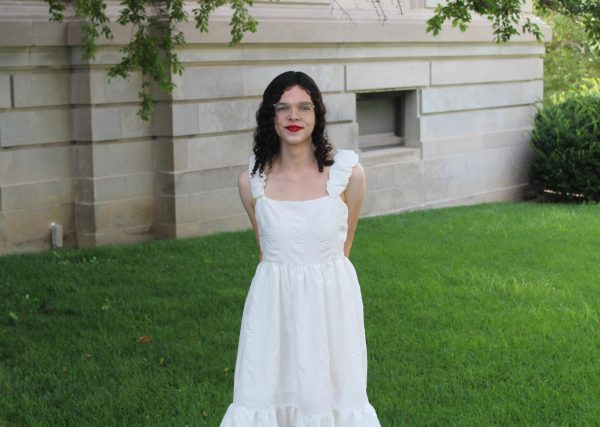
Hello Register readers! I am Jane McGill, and this is my third and final year at The Register. I served as Executive Editor, editing The Register’s...






